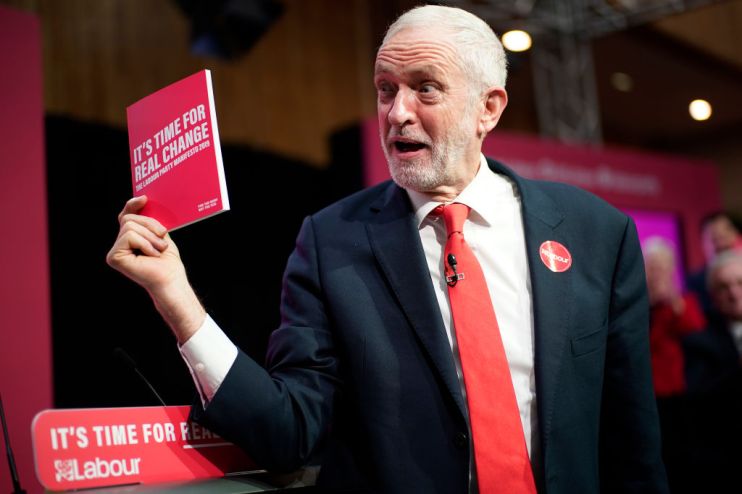Today’s Labour party has no excuse for its anti-business agenda

Labour’s election manifesto, launched yesterday by Jeremy Corbyn, has been labelled the most left-wing since the Michael Foot era, when the party also doubled down on high taxes, nationalisation of industry, and more state interference in the economy.
Personally, I don’t think the comparison holds up — it’s not generous enough to Michael Foot.
While Foot’s economic philosophy was proved wrong during the Margaret Thatcher era — dominated by growth and sharp rises in living standards — the evidence for this did not materialise overnight.
Unemployment rose in Thatcher’s first few years in office, growth suffered at the start as the government tried to tackle inflation, and the huge boost to household incomes didn’t come until later in her tenure. In the early 1980s, one could argue that the battle of ideas was still playing out between state-centric socialism and free market capitalism.
But eventually, that battle resulted in a clear winner.
Britain has since become hugely economically successful, thanks to the new tax structures and privatisations that were the hallmarks of Thatcher’s time in government.
The privatisation of major industries, including rail, energy and telecommunications, boosted competition, produced better services for customers, and created a genuinely fairer system in which the travel and consumption habits of others were no longer paid for by minimum wage earners.
Critically, treating businesses as the benefactors as opposed to the enemies of public services allowed not only for private sector growth (creating more jobs, more wealth, and more consumer choice), but also more tax revenue to pay for better investment in social safety nets.
It is thanks to the profit motive, not the state, that the welfare budget has been able to double in size since Thatcher left office. Without enterprise, there would be no tax revenue, and thus no funding for the giveaways.
When today’s Labour party pushes a platform of tax hikes and renationalisation, it does so in the full knowledge that these ideas have been tried, tested, and failed.
Labour plans to target business through a series of new taxes — a financial transactions tax, a windfall tax, hikes in corporation tax — wrongly assuming that the behaviour of those saddled with increases won’t change.
The party’s estimate for revenue brought in by raising corporation tax is miraculously more than double what the 26 per cent threshold brought in originally. There is no acknowledgement of what will inevitably happen when the tax burden on business gets passed on to consumers and workers.
Labour should know better. While there is plenty for the left and the right to debate — optimal tax rates, best delivery of the welfare state, the future of our pensions or healthcare systems — the idea that the state can better control the means of production than the private sector has been utterly debunked here in the UK, not to mention around the world.
The jury is firmly in. It was in decades ago. The flourishing of free enterprise makes Britain an infinitely better, more desirable place to live. Foot’s Labour party didn’t have much of an excuse for clinging on ideas of a socialist utopia — but Corbyn’s Labour party has none at all.
Main image credit: Getty